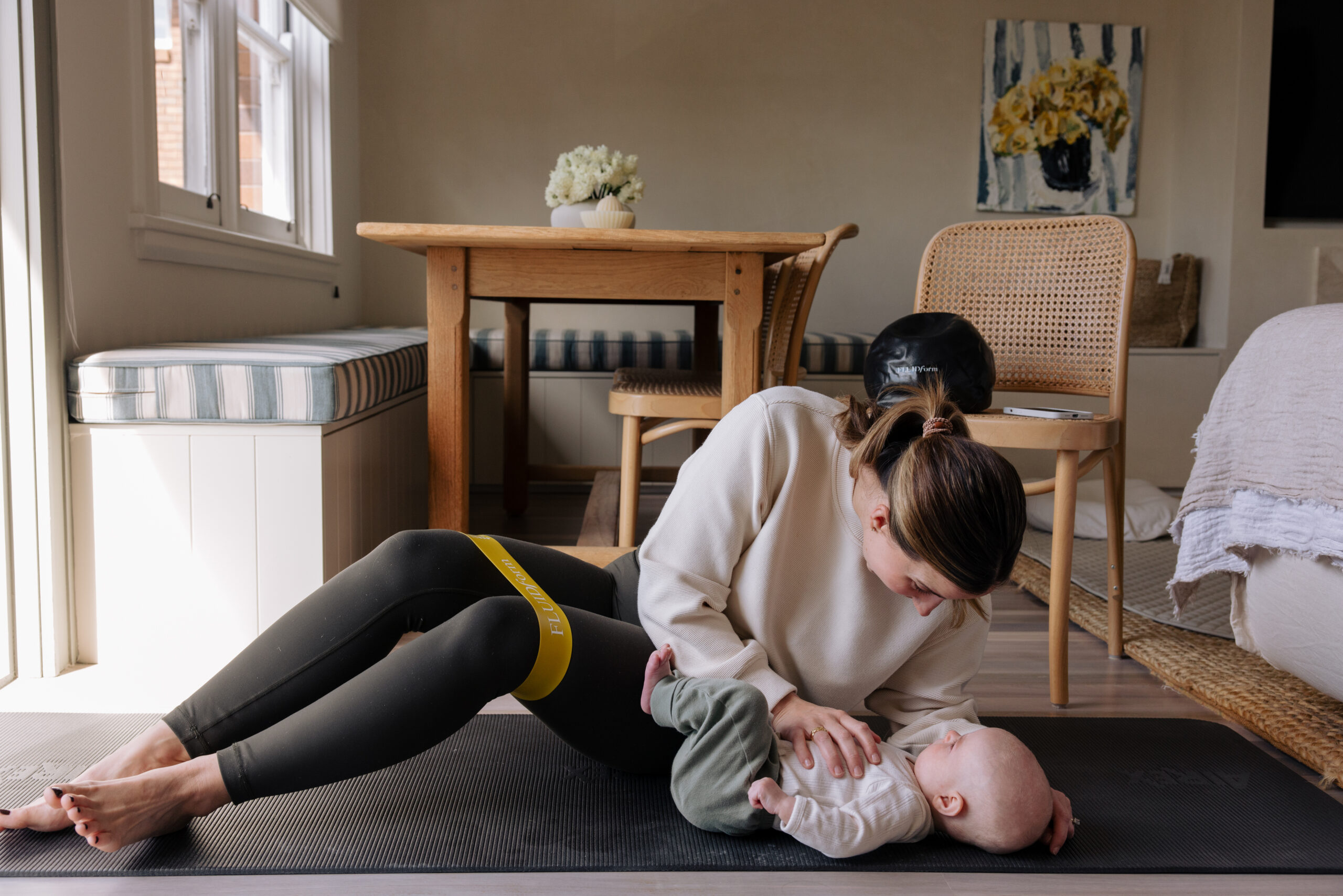Postpartum is a time for restoration after growing, birthing and nourishing a new being. It is also a time of adjustment. Our bodies start to rebuild themselves after delivering a newborn and we enter the world of parenthood. This time is beautiful and empowering, as well as challenging and exhausting. The single best way to restore energy and agility is sleep, however the fragmented sleeping patterns of new mothers and parents often comes with added stress and fatigue. Other factors to support your postpartum journey are a trusted support group, a balanced nutrition plan, professional and medical guidance and movement. Let’s talk about the benefits of movement for postpartum.
Benefits of exercise:
- Boost energy levels
- Releases endorphins to boost mood and prevent postnatal depression
- Restore muscle strength
- Reconnects abdominal separation
- Supports quality of sleep
- Improves heart health
- Strengthens pelvic floor muscles
Return to Exercise
Your return to exercise will look different for everyone. A general rule of thumb is 6 weeks post-birth, otherwise clearance from your GP. When you are ready to return to movement, we recommend starting with:
- Start by focusing on your breathing. As you exhale, focus on contracting your abdominals (TVA) like a corset being drawn together at the front. Make sure your spine and pelvis is aligned, and maintain small gaps under your neck and lower back, this is your neutral spine position.
- The next progression is to move up into the crawl position of 4pt kneeling – hands and knees hip distance apart with your hands directly under your shoulders and knees under your hips. Maintain this same breathing focus, expanding and contracting your abdominals as you inhale and exhale.
- Next move onto exercises to strengthen your pelvic floor. Start with pelvic curls on your back to realign your pelvis, strengthen your glutes and mobilise your spine.
- Once you build strength in your pelvis, glutes and inner thighs, you will start to engage your core muscles and rebuild your abdominal strength.
- Focus on stretching your shoulders, back and neck to release imbalances from carrying, feeding and nurturing.





